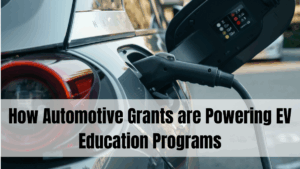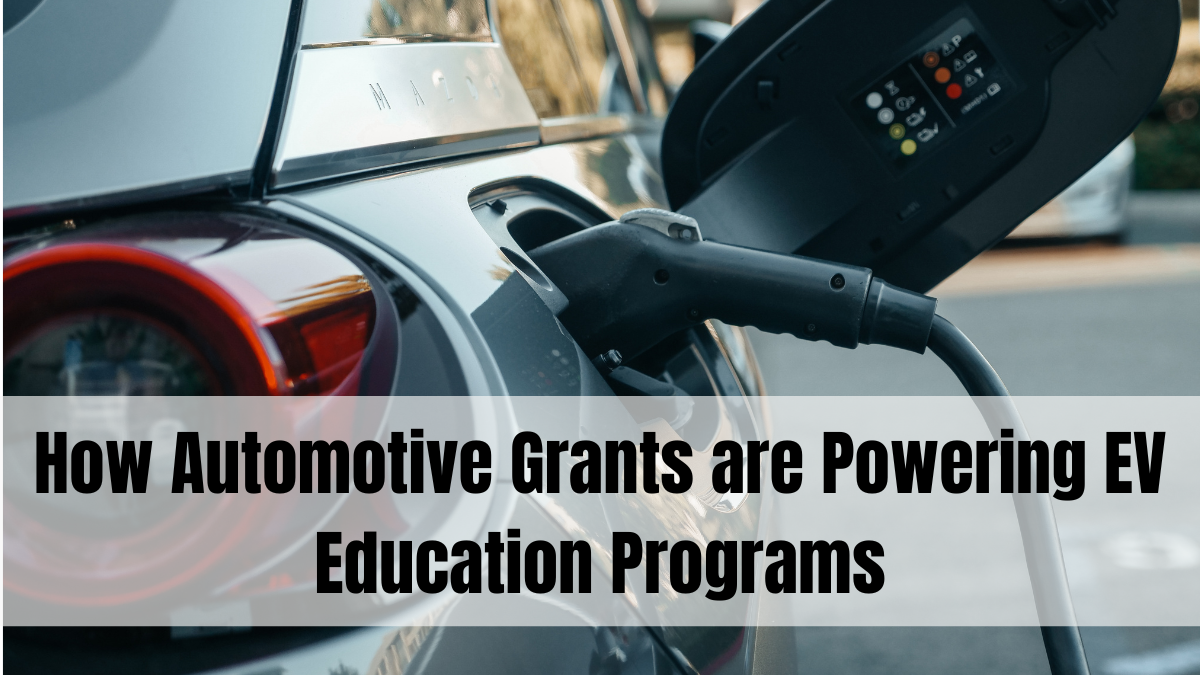The rise of electric vehicles (EVs) is not just a trend — it’s a transformative shift for the entire automotive industry. As this transition accelerates, automotive education grants are becoming a critical tool to equip future technicians with the right skills. In Minnesota, forward-thinking institutions are tapping into federal and state funding to lead the charge in EV-focused education.
Minnesota State, one of the most progressive education systems in the U.S., has emerged as a key player in shaping automotive training for the green era. With the help of the National Science Foundation (NSF) and similar organizations, these schools are not only expanding their curriculums but also upgrading their facilities and investing in staff development.

NSF Grants Fueling EV Curriculum Innovation
Minnesota State colleges have received multiple rounds of NSF-funded grants targeted at developing advanced EV education programs. These grants support the creation of:
-
EV-specific learning modules
-
Battery and charging systems training
-
High-voltage safety certification paths
-
Simulation-based learning environments
The funding ensures students aren’t just reading about EV systems — they’re working directly with them.
Modern Tools and Real Cars in Classrooms
With automotive education grants, colleges now have the ability to purchase fully functional electric and hybrid vehicles for student use. These grants cover:
-
High-voltage lab setups
-
EV diagnostic scanners and charging ports
-
Modular platforms to explore EV components safely
-
Access to remote learning software
Such resources allow students to practice diagnostics, repair procedures, and safety protocols on actual EVs, preparing them for real-world service environments.
Expanding Faculty Expertise and Industry Collaboration
Funding is also helping educators upskill themselves. Professors and instructors are now receiving training from OEMs like Ford, GM, and Tesla to stay aligned with the latest automotive innovations.
These partnerships mean:
-
Curriculum updates reflect actual industry tools and standards
-
Students are prepped for certifications like ASE and Tesla START
-
Graduates are better matched to employers’ expectations
The automotive education grants also encourage local dealerships and repair shops to engage with students through internships and hands-on apprenticeships.
Empowering Underserved Communities
Another crucial benefit of these grants is increased accessibility. Several Minnesota State colleges use this funding to offer:
-
Tuition subsidies and scholarships
-
Free evening/weekend classes for working adults
-
Targeted outreach to underrepresented groups, including women and minorities
This inclusivity not only diversifies the technician workforce but also strengthens the auto repair industry by addressing the ongoing skills shortage.
Data-Driven Results and National Recognition
The impact of these automotive education grants is measurable. Colleges report:
-
A 40% increase in EV course enrollments
-
Faster job placements post-certification
-
Higher ASE exam pass rates
-
Recognition by national education boards and trade organizations
Minnesota’s approach is now being studied as a model for EV education across other U.S. states.
FAQs
What are automotive education grants?
These are funding programs provided by government bodies like NSF to help colleges improve automotive training, especially in emerging areas like electric vehicles.
How are Minnesota colleges using these grants?
They are using the funds to develop EV-focused curriculum, purchase EVs and lab equipment, train instructors, and support underserved students.
Can students get financial support through these programs?
Yes, many grants include funding for tuition support, learning materials, and even stipends for students pursuing automotive certifications.
Do these grants only support electric vehicle education?
Primarily, yes. However, some also support hybrid systems, diagnostic tools, and sustainability practices within automotive education.
Are the results of these grants visible?
Absolutely. Colleges in Minnesota report higher enrollments, better exam outcomes, and improved placement rates in EV and hybrid technician jobs.
Click here to know more.
